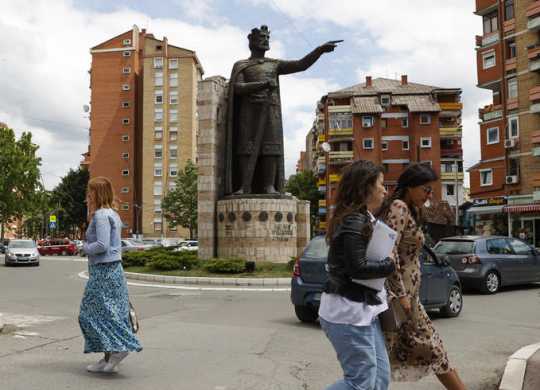Medicine and healthcare in Kosovo. Family medicine and medical care in the country
Table of contents

The Republic of Kosovo is a partially recognized country on the Balkan Peninsula. As a result of hostilities in 1999 between Serbs and Albanians, the region came under the control of the UN. In 2008, the country's parliament declared the region's independence. There are two official languages here: Albanian and Serbian.
Health care system
This is the most promising branch of industry for the country. Kosovo's healthcare system dates back to Yugoslavia. Although the last decade has seen some significant improvements, significant challenges remain. Poor health and medical care in Kosovo have forced many locals to seek better medical services in neighboring countries, even for routine check-ups. The growing demand for quality health care and the lack of government resources to meet these needs create opportunities for American companies to provide a variety of health care services.
There are seven regional public hospitals throughout the country and one university hospital located in Pristina. Opened in 2015, the American hospital offers state-of-the-art technology and equipment, as well as more complex procedures than typically offered locally. A second US hospital to focus on women's health is currently under construction, with plans to open in 2022.
In 2017, the Ministry of Health adopted the National Health Sector Strategy 2017-2021, which aims to ensure better financing and better access for marginalized groups. In 2014, the Law on Health Insurance was adopted in Kosovo, which gives all citizens the right and obligation to have compulsory health insurance. However, to date, Kosovo has still not implemented the law. Although public health facilities are available to all citizens of Kosovo, the Serbian government pays for many public health services in Serb-majority areas. The process of public procurement in the field of health care is characterized as complex, lengthy, and non-transparent. The country's pharmacies and medical facilities rely on imported medical equipment and pharmaceuticals. There is limited local production of generic pharmaceuticals. The National Medicines Agency is responsible for licensing importers and quality control.
Development of family medicine
Primary health care services were divided among specialties by age, sex, and disease type and were provided by general practitioners and nurses. Patients turn to hospitals for both primary and secondary medical care. Private medical practice was not allowed, it began to develop in the early 90s.
Today, the Association of Family Doctors of Kosovo is responsible for continuous professional development. Doctors will undergo re-certification every five years. All medical graduates must also complete a two-year basic module, the second year of which is devoted to family medicine.
Despite the progress in the training of family doctors, the national system of family medicine is not fully established. Responsibility for providing primary health care was transferred to municipalities in 2001, and progress has varied between them. Lists of patients have not yet been created, although in some regions patients are registered in a single center of family medicine. A new medical documentation system has been introduced, which will be linked to a central database. However, it is not always used properly due to insufficient staff training.
Salaries
Ethnic tensions still cause difficulties. Violence erupts from time to time, especially related to Serbian enclaves. Most Serbian doctors work in Serbian enclaves, some of whom are paid by Belgrade and have higher salaries than their colleagues in the rest of Kosovo and even in Serbia. In general, the meager salaries of doctors threaten primary care as well. The average salary of a doctor is about 200 euros per month. Many doctors hold at least two jobs. If salaries cannot be raised significantly, public-sector doctors will continue to have to work in private practice.
Prospects
In the future, family medicine in Kosovo may receive less international aid, so a health insurance system should be established in the country, possibly supported by the consolidated budget of Kosovo. An affordable and sustainable healthcare system depends on the continuous development of primary care. By the way, you can get proper medical insurance on our website.
Recommended articles
2 min
Treatment
Health insurance and healthcare system in the Netherlands: complete guide for expats
Health insurance in the Netherlands is one of the first and most important formalities after moving, which determines access to doctors, treatment, tests and medical services in the country. Find out how to apply for a policy, when to register, how much insurance costs, how a family doctor works and much more useful information for foreigners abroad
01 Dec. 2025
More details4 min
Treatment
5 min
Work
4 min
Residence permit
All materials and articles are owned by VisitWorld.Today and are protected by international intellectual property regulations. When using materials, approval from VisitWorld.Today is required.